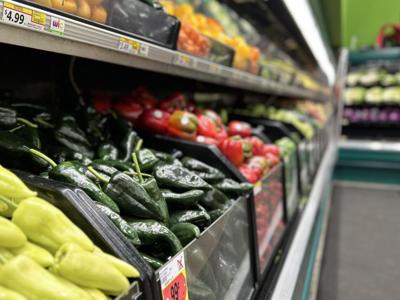
SNAP helps U.S childrens avoid hunger. Photo by Amairani Hernandez.
In a recent guidance memo, the U.S. Department of Agriculture (USDA) seemingly told states that some lawful permanent residents will be ineligible for the Supplemental Nutritional Assistance Program (SNAP) going forward. Under the law, permanent residents are eligible for the food assistance program.
California Attorney General Rob Bonta joined 20 other attorneys general in sending a letter on Wednesday to the USDA clarifying that its memo included “inconsistencies and errors” regarding the eligibility of migrants who become permanent residents. They argue that this mistake in messaging will create confusion and chaos and potentially cause thousands of eligible individuals to lose out on their lawful benefits.
“The USDA wants states to implement confusing and inaccurate interpretations of the law that would wrongfully deny eligibility for food assistance to thousands of lawfully residing immigrants,” said Bonta in a statement. “If USDA’s guidance is not fixed, certain legal permanent residents could needlessly go hungry. I urge the USDA to take immediate action to rectify its errors.”
The changes in the USDA’s guidance come on the heels of the Big Beautiful Bill, the budget bill championed by President Donald Trump and passed in Congress this year.
The bill amends a section in the Food and Nutrition Act of 2008 to remove SNAP eligibility from individuals who entered the country as refugees or were granted asylum or humanitarian parole.
The USDA mistakenly piggybacked on this change, according to the multi-state coalition, by telling states that the following individuals were not eligible for SNAP: refugees, individuals granted asylum, parolees and people whose deportations were stopped because they would be at risk of persecution in their home country. All of these groups are eligible for SNAP if and when they become permanent residents.
The attorneys general also argued that the USDA mistakenly implied that those individuals must wait five years after receiving permanent residency to qualify for SNAP; the law says these individuals are eligible immediately after obtaining permanent residency.
Another point raised in the letter is that the USDA seemingly got its dates mixed up and tasked states with immediately implementing these SNAP limitations, despite only giving them one day to do so before being subject to penalties.
Federal regulations require a 120-day exclusionary period following mandatory changes like this one, to give room for errors that occur during implementation. The 120 days are supposed to begin after the change is introduced.
In its memo, the USDA stated the exclusionary period ended on Nov. 1, just one day after the memo was sent.
The states asked the USDA to amend its guidance to fix the inconsistencies and mistakes, as well as adjust the exclusionary period and not hold states accountable for any compliance errors made as a result of the late guidance. The states asked the USDA to respond by Monday, Nov. 24.
This is the latest update to an ongoing legal battle over SNAP benefits since the program lapsed during the federal government shutdown, which has now ended.

























(0) comments
Welcome to the discussion.
Log In
Keep it Clean. Please avoid obscene, vulgar, lewd, racist or sexually-oriented language.
PLEASE TURN OFF YOUR CAPS LOCK.
Don't Threaten. Threats of harming another person will not be tolerated.
Be Truthful. Don't knowingly lie about anyone or anything.
Be Nice. No racism, sexism or any sort of -ism that is degrading to another person.
Be Proactive. Use the 'Report' link on each comment to let us know of abusive posts.
Share with Us. We'd love to hear eyewitness accounts, the history behind an article.